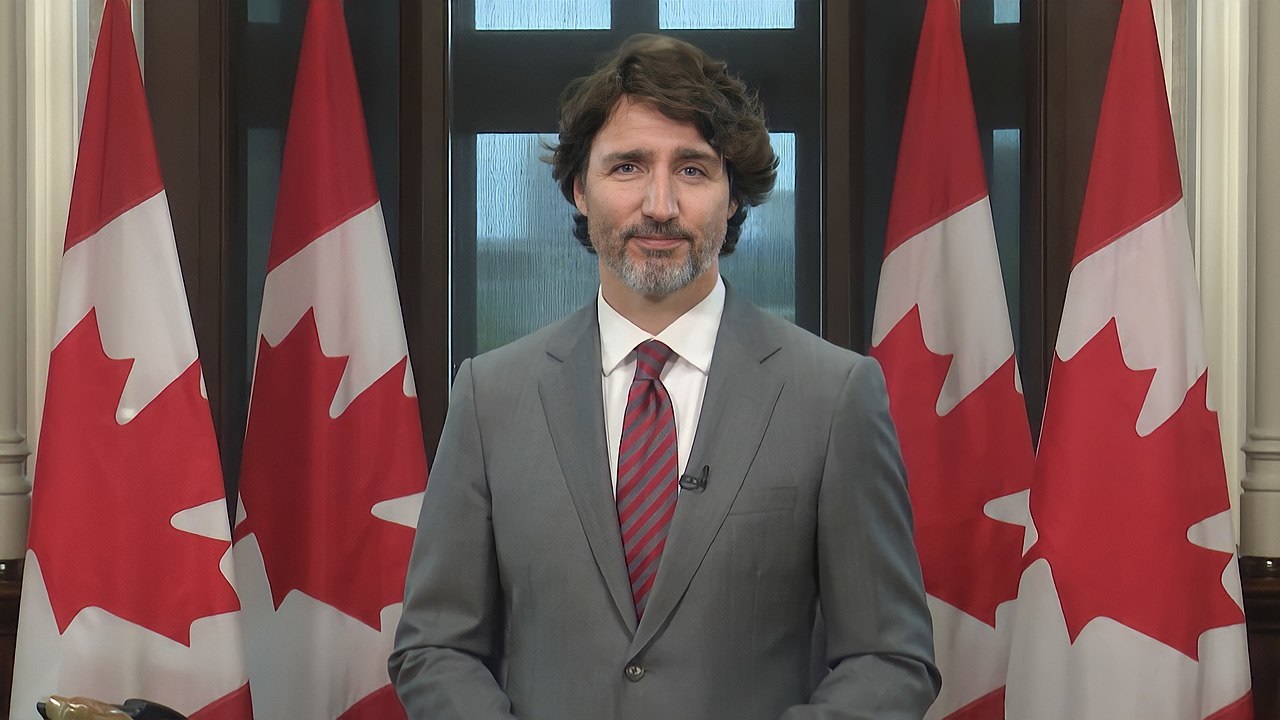Canada should be pursuing a just foreign policy of spreading liberal democracy and balancing against authoritarian threats to the international trading system. Such a foreign policy would enjoy broad domestic support. However, this will not happen without some prodding. The abrupt collapse of the Warsaw Pact in 1989 was an elegant demonstration of Canada’s historical indifference to the oppression of occupied peoples by foreign-imposed puppet regimes. Canada’s ruling political parties will not risk their electoral prospects now by choosing an ethical foreign policy over the benefits of commerce and functioning supply chains. We can see this in Canada’s reluctance to respond to Chinese crackdowns in Hong Kong.
The U.S. can help Ottawa finally learn to appreciate its broader interests, which include the defense of democracy in Asia. There are a number of instruments Washington can use to that end.
How to Get Canada to the Table
First, it should be obvious that Canada is far more dependent on U.S. market access and imports than the reverse. U.S. trade with Canada was worth over $700 billion, equivalent to 40% of Canadian gross domestic product. The U.S. trades more with China, and almost as much with Mexico. Its total trade with four other countries (Japan, Germany, South Korea, and the United Kingdom) also exceeds the value of the Canadian total. In other words, there are substitutes for Canadian goods and markets. Canadian politicians are well adapted to an electoral system in which voters prioritize economic well-being as the principal concern, so Canada is exceptionally vulnerable on trade issues across the ideological spectrum. The list of pressure points is long: softwood lumber, dairy, pharmaceuticals, non-renewable energy, renewable energy, automotive, and cultural protectionism.
Tailored targeting of trade issues linked to specific urban electoral districts will not work, since most of the trade issues affect electoral districts where non-left-leaning parties gain their votes. Such targeting would also be an egregious interference in Canada’s domestic affairs, and it could be counter-productive. U.S. attempts to influence the public discourse during an election in Canada in 1911 led to a backlash that unintentionally unseated the ruling Liberal Party. More famously, U.S. President John F. Kennedy’s nefarious 1963 manipulation of public opinion through active press agents successfully displaced the Conservative government of Prime Minister John Diefenbaker. Nevertheless, it is reasonable for Washington to expect Canada to contribute to the security of the trading system from which it profits.
Second, Washington could threaten even more boldly to highlight its disagreement with Canada’s assertion of sovereignty over the Northwest Passage, a series of straits in Canada’s Arctic archipelago over which Ottawa stakes a claim in violation of international law. Ottawa’s heavy political investment and public commitment to this territory, and its enforcement weakness, makes it particularly vulnerable on this issue. Washington is committed to the principle of the freedom of navigation, but it can offer as a concession to restrain from making vivid demonstrations of Canada’s material absence in its own Arctic territories. In a worse case, the U.S. could conceivably seize the Canadian Arctic archipelago, given Canada’s practical absence from the region.
Exploiting Canadian Fragmentation
Canadians have lost the historical memory that the U.S. will intervene to protect its continental hegemony. Immediately after the U.S. Civil War, Washington supported Mexico’s move to expel the Hapsburg monarchy established there. During the rise of Germany, U.S. interventions in the Caribbean were largely focused on neutralizing bases of influence supported by German financial investments. Were Canada to depart too far from a constructive role, the U.S. could exploit fissures in Canada’s unity.
Historically the U.S. has been averse to getting visibly involved in Canada, or even to be seen as noticing what is going on there. In fact, American decision-makers have historically believed that Canada’s regional fragmentation drives its lack of assertiveness in foreign policy, and Washington appreciates that what little support Ottawa provides the U.S. in international forums could easily come to an end. Because of broad U.S. support for the principle of self-determination in developed countries, Washington would be severely constrained in any attempt to intervene physically during a secession crisis. However, newly independent North American nations, alongside a rump Canada comprising Ontario and the Atlantic provinces, would be especially vulnerable economically, which would give the U.S. considerable leverage.
When Canada’s European and U.S. allies are united, however, Canada’s domestic politics follow in abeyance. These conditions were met during both World Wars and the Korean War, as well as during the early Cold War, when Canada was as substantial an ally as Australia. During the Second World War, in August of 1940, Canadian Prime Minister Lyon Mackenzie King and U.S. President Franklin D. Roosevelt agreed to form the Permanent Joint Board on Defense, as part of the Ogdensberg Agreement. Canada’s participation in NATO followed in 1949, and NORAD in 1957. Consequently, a whisper may be sufficient to alert Ottawa to the seriousness of the American request to take responsibility for its share of the defense of North America and the community of democracies.
Dr. Julian Spencer-Churchill is associate professor of international relations at Concordia University, and author of Militarization and War (2007) and of Strategic Nuclear Sharing (2014), and a former operations officer, 3 Field Engineer Regiment. He has published extensively on security issues and arms control, and completed research contracts at the Office of Treaty Verification at the Office of the Secretary of the Navy, and the then Ballistic Missile Defense Office (BMDO).

